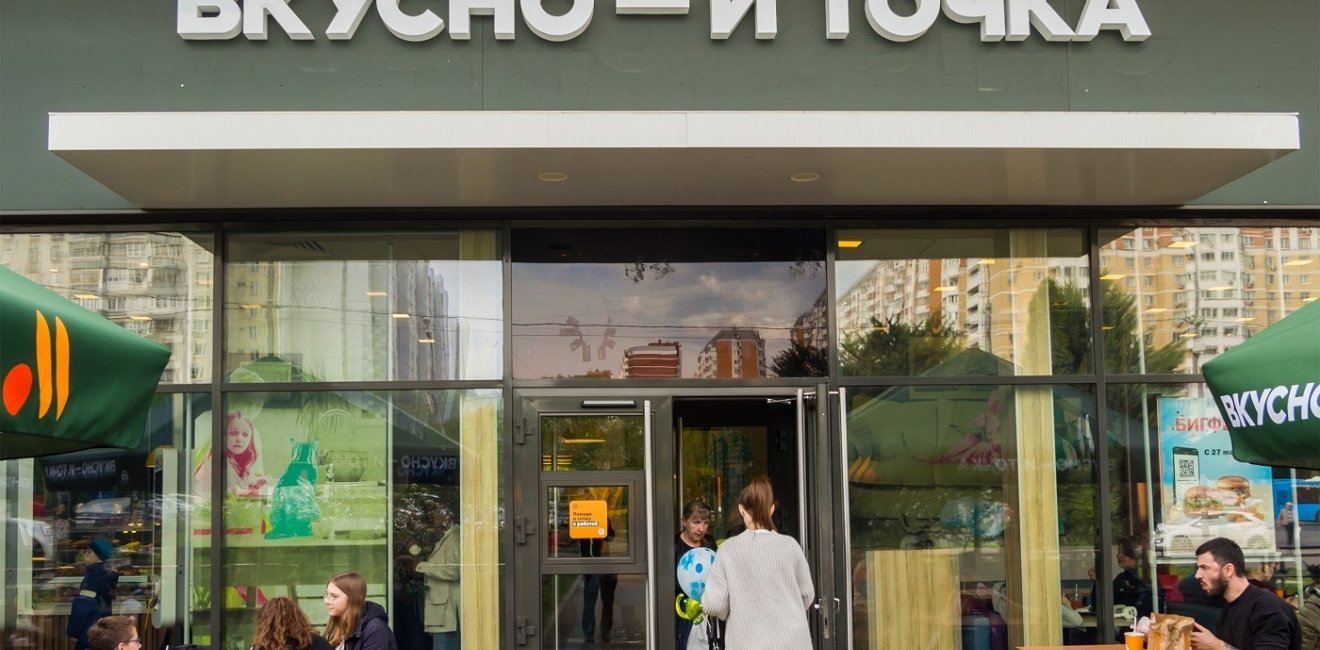
A blog of the Kennan Institute
The Kremlin is not only revisiting the outcomes of the 1990s privatization to benefit businessmen close to it but is engaged in outright nationalization of foreign-owned businesses.
Although Russia's dependence on foreign companies is described as "humiliating" even by the president of Russia, the country cannot afford to let these companies leave the market, taking with them technology, expertise, and, ultimately, the money that supports the Russian economy. Securing the advantages foreign-owned companies brought to the country has meant backtracking from a market economy and the forced sale or forfeiture of operations and assets. Nor is President Putin done: executive orders one after another have reframed the legal environment and appeals processes for foreign-owned businesses still operating inside Russia.
Abandoning a Market Economy
From the very first months after the full-scale invasion of Ukraine, Russian officials have emphasized the need to move away from market economy principles in favor of ensuring the country's “technological sovereignty.” It is self-evident that by technological sovereignty, officials also mean the forcible retention of foreign businesses and their technologies in Russia. The extent of Russia's departure from market economy principles has increased over time, with all restrictive measures being implemented not by laws but by presidential executive orders.
In March 2022, Visa and Mastercard announced the cessation of their operations in Russia. Since that time, payment cards from these systems have continued to work in Russia but stopped working abroad. Many large global companies also announced the suspension of their operations in Russia, including IKEA, McDonald's, DHL, Microsoft, Airbnb, Booking.com, and various car manufacturers.
Making It Hard for Businesses to Leave
When it became clear that individuals were leaving the country and foreign companies had suspended their business operations, the Russian president banned foreigners from “unfriendly countries” from selling real estate without the permission of a special government commission. Not surprisingly, Russia considers the United States, along with countries in the EU, “unfriendly.”
The restrictions on real estate sales could not stop foreign companies from leaving the country, and by the summer of 2022, Russia had begun taking measures to complicate the exit of foreign companies from the market. In particular, a presidential executive order prohibited transactions involving the sale of shares in legal entities without government consent if those shares belonged to owners from "unfriendly countries."
Even before the new rules were adopted, McDonald's managed to sell its business to one of its franchisees. The business was sold for a symbolic amount, though with the option to buy it back within fifteen years. Hundreds of fast-food restaurants in Russia reopened after a pause under a new slogan: “Вкусно—и точка” (Tasty. And That's It). Other foreign companies were less fortunate.
Recognizing that the outflow of foreign businesses from the country could not be halted, and in response to the escalating anti-Russian sanctions in the spring of 2023, President Putin issued Executive Order No. 302, "On the Temporary Administration of Certain Property." This executive order introduced a new form of Russian countersanction: the temporary administration of property belonging to foreigners.
Shifting Legal Sands for Foreign-Owned Businesses Facing Expropriation
The first victims of these measures were the Finnish company Fortum and the German company Uniper. Shortly after the order was issued, their Russian subsidiaries were placed under the management of the Federal Agency for State Property Management.
Later, Fortum admitted that it had effectively lost control over its Russian subsidiary and began a complete deconsolidation and impairment of the company's Russian assets. The company acknowledged a loss of billions of euros in investments and initiated arbitration proceedings against the Russian Federation for violations of international investment treaty protections
Other cases, such as those of the Russian subsidiaries of the French company Danone and the Danish Carlsberg Group, are illustrative. Despite agreements on the sale of businesses in Russia, in the summer of 2023, a presidential executive order removed foreign owners from managing these Russian subsidiaries. The changes that occurred inside the companies during a year under external management vividly illustrate the Russian reality and the purpose of the measures taken by Russia.
Immediately after removing management control of the Russian legal entity Danone, Yakub Zakriev, nephew of the head of the Chechen Republic, Ramzan Kadyrov, assumed the role of CEO. Despite this change, Danone remained hopeful of selling its assets and recouping some value. In 2024 the French company achieved this goal: the purchasers were Yakub Zakriev, director of Russian Danone, appointed by the state, and a company owned by Mintimer Mingazov, a board member also appointed by the state.* The deal received approval from the Russian government, yet Danone's headquarters received significantly less than the market value for its Russian business.
The Carlsberg Group case unfolded differently: the company refused to collaborate with Russian authorities to avoid legitimizing the de facto nationalization of its business. It accused the Russian government of theft and withdrew licenses for producing its beer brands in Russia from the subsidiary.
Under these circumstances, any compensation for the expropriation was deemed out of the question. Russian officials asserted that placing the business under external management did not constitute a transfer of ownership rights, thereby denying any nationalization of the company. A Russian court prohibited the revocation of licenses from the Russian subsidiary for producing beer brands and reversed the transfer of the popular Russian beer brand to Carlsberg Kazakhstan, while state media launched a campaign accusing the Danish owners of acting against Russian interests.
Threats of Additional Seizures in Response to the U.S. REPO Act
The extensive list of companies nationalized by Russia looks impressive but Russia's ambitions go far beyond this list, indicating further developments ahead.
The latest action by Russia against foreign businesses was prompted by the passing of the Rebuilding Economic Prosperity and Opportunity for Ukrainians Act (REPO Act) in the United States. This law empowered the U.S. president to seize the sovereign assets of the Russian Federation and use them in aiding Ukraine.
In response, President Putin issued Executive Order No. 442, "On the Special Procedure for Compensation for Damage Caused to the Russian Federation and the Central Bank of the Russian Federation due to Hostile Actions by the United States of America." This order stipulates that if property in the United States is seized, the owner can appeal to a Russian court. A special government commission will furnish the court with a list of U.S.-owned and U.S. persons–owned property in Russia, which may then be subject to seizure by the Russian court. The order covers various types of property, including movable and immovable assets, securities, and property rights. Although no such seizures have occurred yet, their likelihood is anticipated in the near future.
The opinions expressed in this article are those solely of the author and do not reflect the views of the Kennan Institute
Author


Kennan Institute
After more than 50 years as a vital part of the Wilson Center legacy, the Kennan Institute has become an independent think tank. You can find the current website for the Kennan Institute at kennaninstitute.org. Please look for future announcements about partnership activities between the Wilson Center and the Kennan Institute at Wilson Center Press Room. The Kennan Institute is the premier US center for advanced research on Eurasia and the oldest and largest regional program at the Woodrow Wilson International Center for Scholars. The Kennan Institute is committed to improving American understanding of Russia, Ukraine, Central Asia, the South Caucasus, and the surrounding region through research and exchange. Read more

Explore More in The Russia File
Browse The Russia File
Chechnya as a Model of Modern Russia

Russia’s Indigenous Communities and the War in Ukraine

Gas and Power in a Changing US–Russia Relationship

